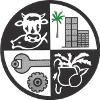Papua New Guinea’s Parliament is likely to approve establishing the long-awaited Sovereign Wealth Fund by June, after unanimously voting for its enactment at its first reading last week.
The Sovereign Wealth Fund (SWF) is critical for the country’s future, says Paul Barker, Executive Director of the Institute of National Affairs, an industry-funded PNG think-tank, but says it is crucial that the standard of accountability is high.
Globally, there are about 78 SWFs, with a combined value of more than US$7 trillion in 2013. Norway has the wealthiest fund, valued at A$931.87 billion, making every Norwegian a millionaire, in theory.
The PNG SWF will be used to house and invest government income from major projects such as the PNG LNG project, and new ones yet to come on stream, such as the Elk-Antelope LNG field and other nickel, gold and copper revenues.
Accountability
‘But for the whole thing to work it requires wide public awareness and knowledge of the SWF, with a strong sense of public ownership, to ensure that there is accountability and that it isn’t just used as a political football or subject to patronage and abuse, by any leader,’ Barker told Business Advantage PNG.
‘An area of concern is that the guidelines for managing the Savings Fund given to the Board will be set by the Treasurer, and at this stage we don’t know what those guidelines will entail; we have yet to see, but it is important that the process is transparent and not discretionary by the Minister.
‘The board appointment process in the legislation is relatively sound, so long as it is adhered to properly, specifying the composition, and entailing an appointment committee, comprising government, but also outside parties, include the Chamber of Commerce and civil society.
Barker says he hopes Papua New Guinea’s SWF will meet the (higher grade of) internationally recommended Santiago Principles of governance and public accountability. Otherwise, he says, there would be no point in creating a SWF.
Structure
The original concept, contained in the organic Sovereign Wealth Fund bill of 2012, proposed three funds but in the 2015 legislation, a proposed Development Fund has been dropped. Instead there will be two elements—a Futures Fund and a Stabilisation Fund.
Prime Minister Peter O’Neill admitted its introduction was prompted by the imminent payment of the first revenues for the LNG project on Friday, February 20, although receipts aren’t expected to go into the fund until 2016.
‘Because of that, we see some urgency in the establishment of this particular Sovereign Wealth Fund,’ he told Parliament.
‘It’s one of the most effective mechanisms being used in a lot of countries for trying to sanitise the Budget from cyclical trends and inflationary and Dutch Disease implications from major export earnings (into local currency) during times of very high commodity prices or the commencement of major new extractive industry projects,’ says Barker.
‘These projects can really substantially increase the flow of foreign currency into the domestic economy, causing a major appreciation of the local currency and undermine the competitiveness of the whole economy and particularly the non-extractive industries, which are so crucial for generating jobs and economic opportunities for the wider community.
‘With the SWF, the payments to the State are retained offshore and invested in a wide range of secure international investments, particularly government bonds, but also other secure, triple-A securities.’

